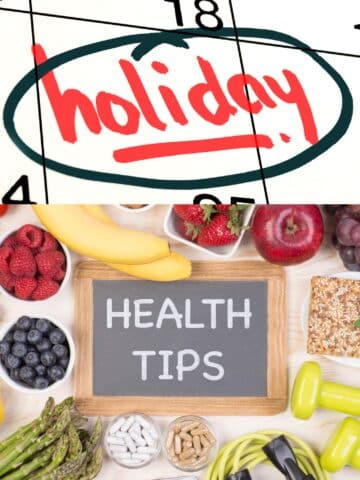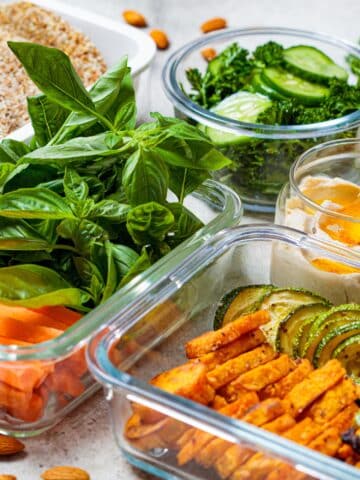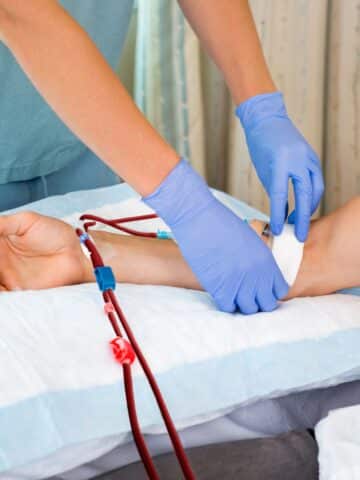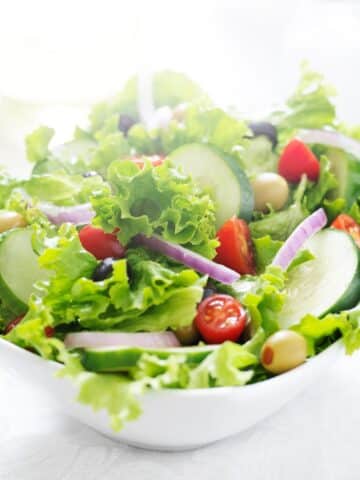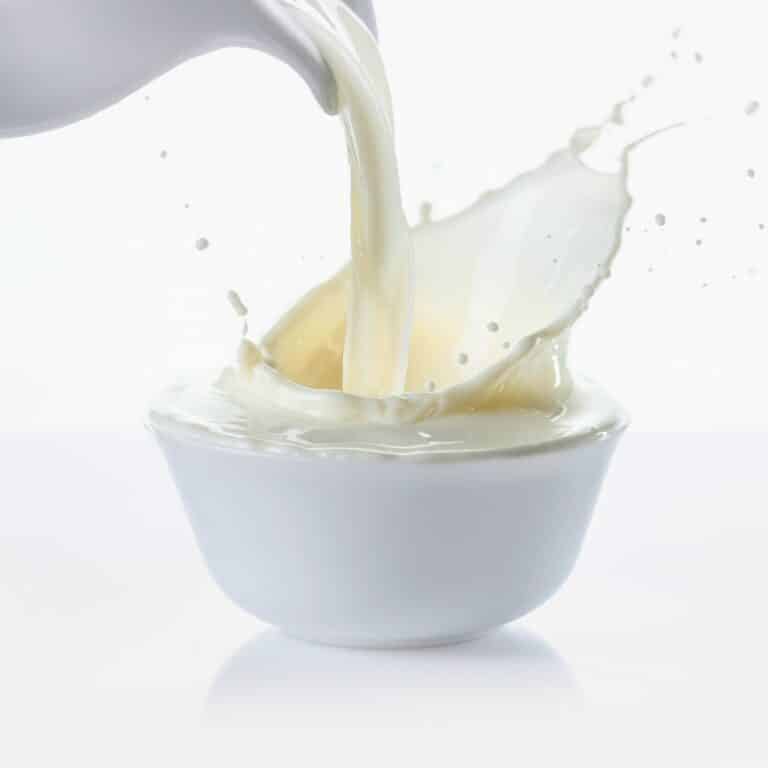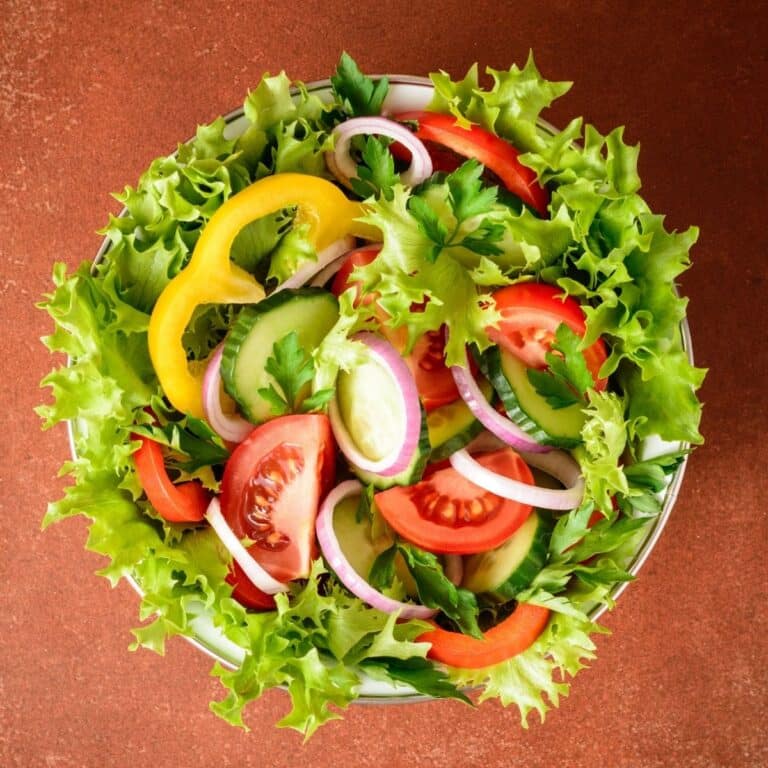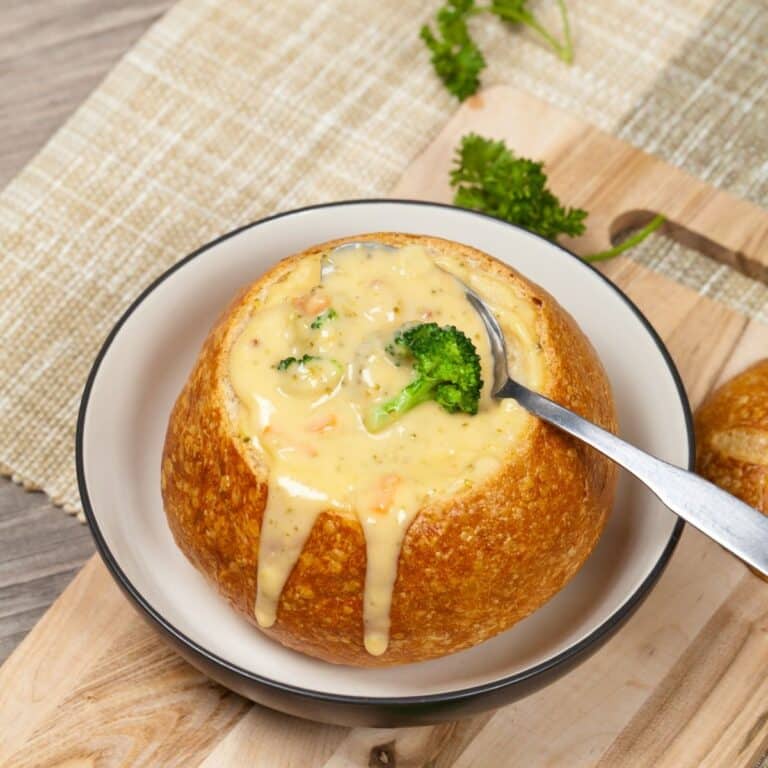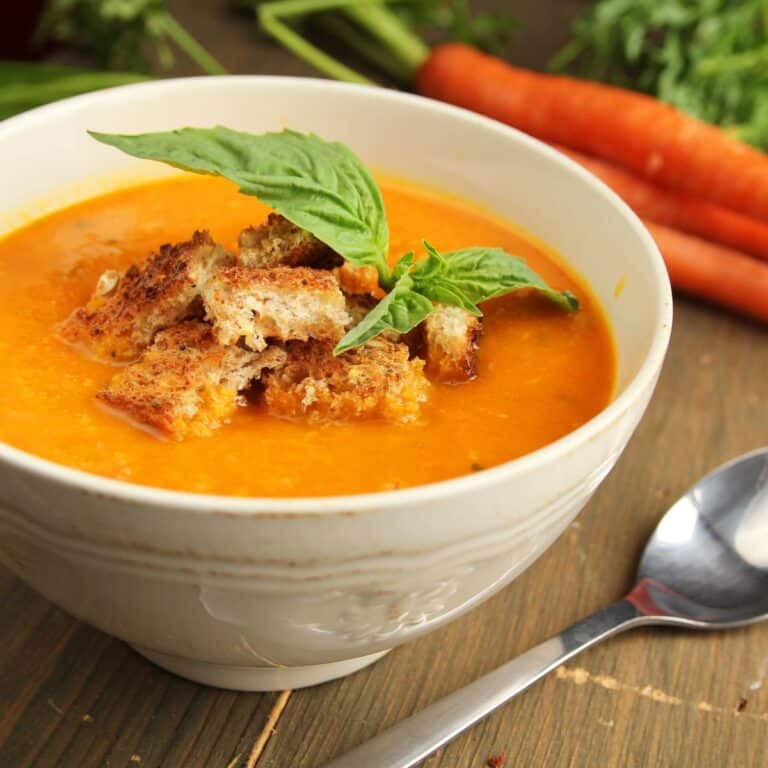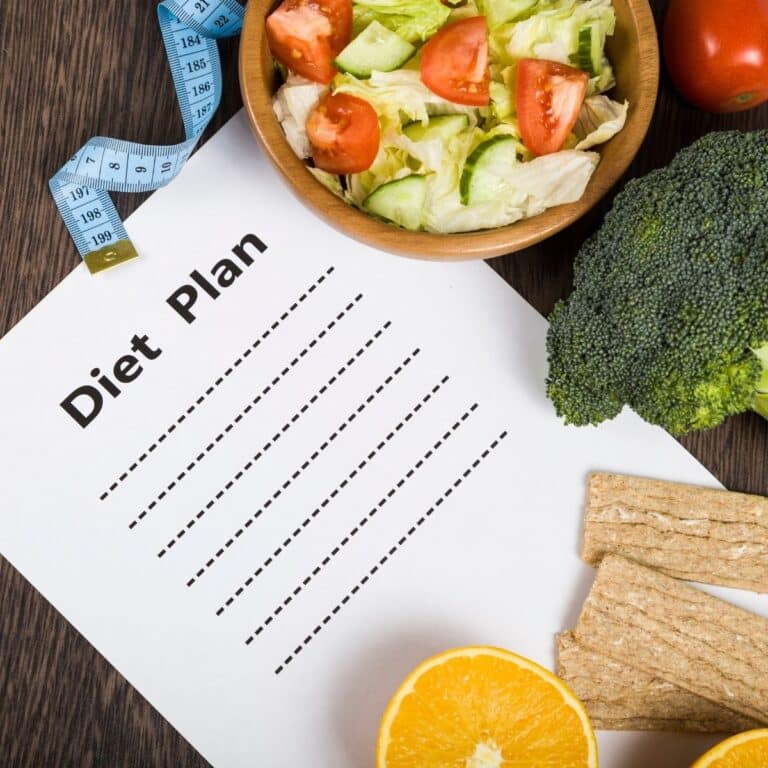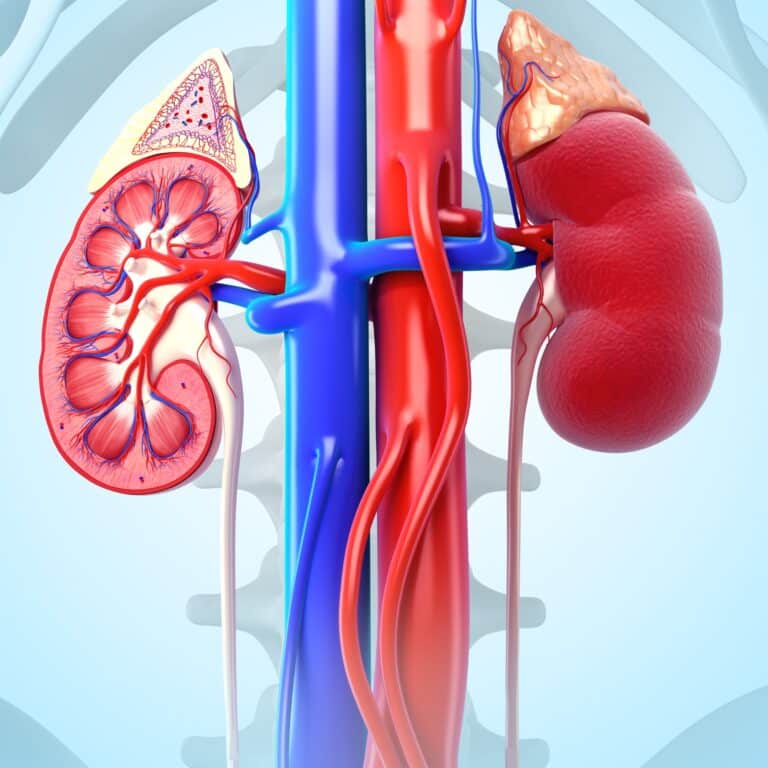Renal Diet Sodium Limit
If you or a loved one is dealing with kidney disease, you may have heard of the renal diet. This specialized dietary plan is designed to help manage symptoms and slow the progression of the disease.
One of the key components of the renal diet is dietary salt restriction.
If you are on a special diet for kidney disorder or renal failure, it is of the utmost importance for you to keep tabs on your sodium intake.
The primary function of the kidneys is to flush out waste and excess fluids. With chronic kidney disorders and renal failure, the kidneys are not able to do their job properly.
The amount of sodium in your body affects this issue because sodium increases water retention in the body, therefore making your kidneys’ job even harder.
In this article, we'll discuss the importance of sodium limits for kidney patients, how excessive sodium affects kidney function, and strategies for monitoring sodium intake.
By understanding how to limit sodium in a renal diet, you can help support those with kidney disease to manage their symptoms and maintain a healthy lifestyle.
Jump to:
- Key Takeaways
- Understanding Sodium and Its Role in the Body
- How Excessive Sodium Intake Affects Kidney Function
- Exploring the Importance of Sodium Limits in Kidney Health
- Establishing Your Daily Sodium Limit: A Guide for Renal Patients
- Renal Diet Sodium Restrictions Helps Prevent Complications
- Practical Tips to Reduce Sodium Intake for Renal Health
- Recommended Sodium Intake Levels in a Renal Diet: Expert Insights
- Low-Sodium Food Alternatives for a Healthier Kidney Diet
- Effective Strategies to Monitor Sodium Intake: Navigating a Renal Diet
- Frequently Asked Questions
- Less Salt, Less Complications
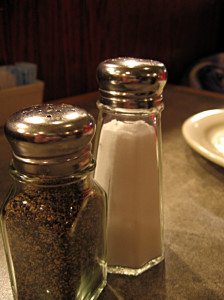
Key Takeaways
- People with kidney disease need to watch their intake of salt to protect their heart and kidneys.
- Processed foods are the main sources of sodium in our diet, and many foods have hidden sodium.
- Use the Nutrition Facts label to determine sodium content in food. Foods with less than 5 mg per serving are sodium-free, less than 35 mg are very low-sodium, and less than 140 mg are low-sodium.
- CKD patients should have no more than 2000 mg of sodium per day and should consult with a registered renal dietitian for personalized dietary guidance.
For More Recipes and Ideas --->> Get Your Free Meals and Recipes That Are Perfect for Pre-Dialysis Diets, Pre-Dialysis with Diabetes, or Dialysis Diets.
Understanding Sodium and Its Role in the Body
Sodium plays a vital role in maintaining the overall health and functioning of the human body. As an essential electrolyte, sodium is responsible for several important physiological processes. One of its primary functions is maintaining fluid balance within cells and tissues. Sodium works in conjunction with other electrolytes like potassium to regulate fluid levels, ensuring proper hydration and preventing dehydration.
Furthermore, sodium is essential for nerve function and muscle contraction. It helps generate electrical signals that enable communication between nerve cells and facilitate muscle contractions, including those involved in movement, heartbeats, and breathing. Sodium also plays a crucial role in maintaining blood pressure by controlling the volume of blood and fluid in the bloodstream.
The body carefully regulates sodium levels through various mechanisms. The kidneys play a crucial role in maintaining the balance by adjusting the amount of sodium excreted in urine. Hormones such as aldosterone, produced by the adrenal glands, help regulate sodium levels by influencing its reabsorption or excretion.
While sodium is necessary for optimal body functioning, excessive intake can have negative health effects. High sodium consumption is associated with an increased risk of hypertension, cardiovascular diseases, and kidney problems. It is crucial to maintain a balanced intake of sodium by avoiding processed and packaged foods that are often high in sodium content and instead opting for fresh, whole foods.
Overall, sodium is a crucial mineral that plays a pivotal role in maintaining fluid balance, nerve function, muscle contractions, and blood pressure regulation. By consuming a moderate amount of sodium and adopting a balanced diet, individuals can support their overall health and well-being.
How Excessive Sodium Intake Affects Kidney Function
Excessive sodium intake can have detrimental effects on kidney function, particularly for individuals with kidney disease. The impact of sodium on the kidneys is multifaceted and can lead to a range of health problems.
Elevated sodium levels in the bloodstream can contribute to the development of hypertension, or high blood pressure. Hypertension, in turn, causes the blood vessels to narrow and stiffen.
This constriction of blood vessels reduces blood flow to the kidneys, impairing their ability to filter waste products effectively. The decreased filtration efficiency can result in fluid retention and a subsequent increase in blood pressure, creating a vicious cycle that further damages the kidneys.
Furthermore, excessive sodium intake can lead to the concentration of urine. The kidneys regulate the concentration of urine to eliminate waste products and maintain fluid balance.
When sodium levels are high, the kidneys respond by conserving water, which leads to concentrated urine. This concentration can promote the accumulation of toxins in the bloodstream and increase the workload on the kidneys, potentially worsening kidney disease.
Moreover, continued high sodium intake can accelerate the progression of kidney disease itself. The kidneys already face challenges in filtering waste and maintaining fluid balance in individuals with kidney disease.
Excessive sodium intake places additional strain on these compromised kidneys, making it more difficult to manage the condition and potentially accelerating the decline of kidney function.
To mitigate the negative effects of excessive sodium intake on kidney function, it is crucial to adopt a low-sodium diet. Limiting processed and packaged foods, which are often high in sodium content, and instead opting for fresh, whole foods can significantly reduce sodium intake.
Additionally, consulting with a healthcare professional or registered dietitian can provide personalized guidance on managing sodium intake and promoting kidney health (processed foods and CKD).
Excessive sodium intake can have detrimental consequences for kidney function, especially for individuals with kidney disease. It can contribute to hypertension, decrease blood flow to the kidneys, lead to fluid retention, cause urine concentration and toxin buildup, and accelerate the progression of kidney disease.
By understanding these effects and adopting a low-sodium diet, individuals can support their kidney health and overall well-being.
Exploring the Importance of Sodium Limits in Kidney Health
For people with kidney disease, it is essential to keep sodium intake in check to maintain optimal health. But it can be difficult to know how much sodium is in the food we're eating, as it's often hidden in processed and packaged foods. Fortunately, there are ways to monitor and manage sodium intake in order to keep our kidneys and hearts healthy.
| Sodium Sources | Hidden Sodium |
| Processed foods | Soups |
| Fast food | Sauces |
| Condiments | Snack foods |
| Canned vegetables | Processed meats |
Sodium can also be found in many drinks, including sports drinks, energy drinks, and some juices. It's important to be aware of the sodium content in these beverages, as they can add up quickly. In addition to monitoring sodium intake, it's also important to be mindful of fluid intake for people with kidney disease. Too much sodium can cause the body to retain more fluid, leading to swelling and high blood pressure.
It's also important to note that sodium can affect heart health in people with kidney disease. An excessive amount of sodium can cause the heart to work harder, leading to an increased risk of heart disease which can ultimately lead to congestive heart failure.
To help avoid these health issues, it is recommended that people with kidney disease limit their sodium intake to no more than 2000mg per day, and avoid foods high in sodium such as fast food and other convenience foods.
By understanding sodium's role in kidney health, and being aware of hidden sodium sources, people with kidney disease can make better food choices to keep their kidneys and hearts healthy.
With the guidance of a registered renal dietitian, people with kidney disease can create a personalized diet plan that meets their individual nutritional needs, taking into account specific sodium limits.
Establishing Your Daily Sodium Limit: A Guide for Renal Patients
Managing sodium intake is key to protecting your heart and kidneys, and establishing a daily limit is an important step for renal patients. To stay on track with your goals, there are several things you can do to monitor your sodium intake.
- Track your daily intake: Keeping a daily record of your sodium intake is a great way to stay accountable. Note what foods you eat, how much sodium is in them, and how much you're consuming.
- Know your sodium sources: Processed and convenience foods are the main sources of sodium in our diets, so they should be monitored closely. Additionally, sodium can be hidden in many foods, so always check the nutritional labels.
- Dining out and substitutions: Dining out can be tricky when you're trying to control your sodium, but it doesn't have to be all or nothing. Ask your server for preparation and ingredient information and always ask for no added salt. Flavorful substitutions like herbs, spices, and citrus can help you get the flavor you crave while keeping your sodium intake in check.
When it comes to managing your sodium intake, it's important to stay mindful and practice these tips to ensure you're meeting your goals.
Consulting your healthcare team and registered renal dietitian for personalized dietary guidance is also key. Keeping a healthy sodium balance is essential for renal patients, so be sure to stay on top of your sodium goals.
Renal Diet Sodium Restrictions Helps Prevent Complications
Excessive sodium intake can have severe complications for patients with chronic kidney disease. Chronic kidney disease is a condition characterized by the gradual loss of kidney function, and high sodium levels can worsen the symptoms and lead to various complications.
One of the primary complications of excessive sodium intake in CKD patients is fluid retention. When sodium levels are high, the kidneys retain water to maintain fluid balance, leading to edema or swelling, particularly in the legs, ankles, and around the eyes. This fluid buildup can cause discomfort, increased blood pressure, and shortness of breath.
Hypertension, or high blood pressure, is a common complication in CKD patients with excessive sodium intake. Sodium causes fluid retention and constricts blood vessels, leading to increased blood pressure.
Hypertension not only puts additional strain on the already compromised kidneys but also raises the risk of cardiovascular diseases, such as heart attacks and strokes.
Excessive sodium intake can also contribute to electrolyte imbalances in CKD patients. Sodium and potassium work together to maintain proper cellular function. Imbalances in this ratio can lead to muscle weakness, irregular heart rhythms, and other complications.
Another complication is the progression of kidney disease itself. CKD patients already have reduced kidney function, and excess sodium places an additional burden on the kidneys. High sodium levels can lead to further deterioration of kidney function, creating a vicious cycle where declining kidney function leads to increased sodium levels, which in turn worsen kidney function.
Moreover, excessive sodium intake can contribute to the development of kidney stones. Sodium can increase the amount of calcium excreted in urine, raising the risk of calcium-based kidney stones. These stones can cause severe pain and may require medical intervention for removal.
To manage complications, it is crucial for CKD patients to closely monitor and control their sodium intake. A low-sodium diet is typically recommended for CKD patients, involving limiting processed and packaged foods, as well as avoiding high-sodium condiments and seasonings.
Working with a healthcare professional or registered dietitian can provide personalized guidance on dietary sodium restriction and help optimize kidney health in CKD patients.
Practical Tips to Reduce Sodium Intake for Renal Health
Now that you have a better understanding of why it's important to reduce sodium intake in a renal diet, let's look at some practical tips to help you make healthier and tastier food choices.
Low sodium recipes are a great way to reduce the amount of salt in your diet. Try searching online for recipes that use less salt and more flavorful foods like herbs and spices for seasoning.
If you are eating out, ask for your food to be cooked without added salt. Most restaurants can accommodate your request.
Be aware of sodium in processed and prepackaged foods. Many of these foods are high in salt and should be limited.
Using herbs and spices to replace salt is a great way to add flavor to your meals. Consider using garlic, onion powder, oregano, basil, turmeric, and other herbs and spices to season your food (how to season food without salt).
You can also use sodium-free seasonings like lemon juice, vinegar, and fresh herbs like parsley. If you're looking for a classic salt substitute, be sure to check the food labels for potassium content, as these products may contain potassium which can be problematic for people with kidney disease on a low potassium diet.
When it comes to your renal diet, the best approach is to focus on whole, unprocessed foods and to season with herbs and spices. Try to limit added table salt, and don't be afraid to experiment with different flavors.
If you're unsure about which foods to include in your diet, it's always best to consult with your healthcare team and registered renal dietitian. With their help, you can create a personalized plan for managing your dietary needs.
Recommended Sodium Intake Levels in a Renal Diet: Expert Insights
Gaining proper insight into your dietary needs is key to understanding how to manage your kidney health. When it comes to kidney disease, sodium intake is especially important.
The American Heart Association recommends that the average adult should consume no more than 2,300 milligrams of sodium per day.
For those with chronic kidney disease (CKD), the recommended daily allowance is anywhere between 750 to 2,000 milligrams per day. It's important to speak with a renal dietician to gain personalized guidance on how much sodium is appropriate for your individual health needs.
Diet plays a crucial role in preventing both hyponatremia (low sodium levels) and hypernatremia (high sodium levels) in patients with chronic kidney disease. Impaired kidney function of CKD patients affects the body's ability to regulate sodium levels effectively.
To prevent hyponatremia, CKD patients should ensure an adequate intake of dietary sodium. Sodium is an essential electrolyte that helps maintain fluid balance and nerve function.
A low-sodium diet can increase the risk of hyponatremia, especially if fluid intake is high. Therefore, it is important for CKD patients to consume an appropriate amount of sodium and fluid within their limits, as advised by their healthcare provider or dietitian.
On the other hand, to prevent hypernatremia, CKD patients should monitor their sodium intake and avoid excessive sodium consumption. As mentioned, high sodium intake can lead to fluid retention, increased blood pressure, and strain on the kidneys.
Therefore, it is crucial for CKD patients to follow a low-sodium diet, limiting processed and packaged foods, as well as avoiding high-sodium condiments and seasonings.
Maintaining a balanced and individualized diet is essential for CKD patients to prevent both hyponatremia and hypernatremia. Regular consultation with a healthcare professional or registered dietitian is recommended to tailor dietary recommendations to the specific needs and stage of CKD, helping maintain optimal sodium levels and overall kidney health.
Low-Sodium Food Alternatives for a Healthier Kidney Diet
Struggling with kidney health doesn't mean you have to give up flavor and enjoyment in your meals, there are plenty of delicious low-sodium food alternatives to help you stay healthy!
Low-sodium recipes, sodium-free seasoning, sodium-free snacks, and sodium-free condiments are available to help you maintain a healthy diet. Incorporating these alternatives into your meal planning can help you enjoy the foods you love while still meeting your sodium needs (meal planning for families with CKD).
| Low Sodium Recipes | Sodium Free Seasoning | Sodium Free Snacks |
| Salad dressings | Herbs | Nuts and seeds |
| Soups | Spices | Fresh fruit |
| Stir-fries | Garlic | Popcorn |
| Rice dishes | Onion powder | Unsalted crackers |
When it comes to condiments, look for low-sodium or unsalted versions. Many brands offer reduced-sodium options, but always check the nutrition label to make sure you're getting the lowest amount of sodium possible. High-sodium condiments, such as soy sauce and teriyaki sauce, should be used sparingly or not at all.
By making small changes to your diet and choosing low-sodium alternatives, you can enjoy flavorful, satisfying meals while keeping your sodium intake within recommended levels. With the right foods and seasonings, you'll be able to create delicious meals that keep your blood pressure in check and your kidneys healthy.
Effective Strategies to Monitor Sodium Intake: Navigating a Renal Diet
Navigating a healthy lifestyle with a chronic condition can be challenging, but understanding how to effectively monitor your sodium intake is key to managing your kidney health. Here are some strategies to help you keep track of your sodium intake:
- Tracking Progress: Tracking your sodium intake can help you stay within your limits. Keeping a food diary can help you keep track of your sodium intake and make changes as needed.
- Sodium Substitutes: Use herbs and spices to add flavor to food instead of table salt. Check the sodium content of reduced and lite sodium products. It's also important to use classic salt substitutes with caution since they may contain potassium, which can be problematic for those on a low-potassium diet.
- Eating Out: It can be difficult to know what is in restaurant food. Ask your server for information about the sodium content of a dish and request your meal to be prepared without added salt.
- Meal Planning: Meal planning is a great way to ensure that you are eating healthy and staying within your sodium limits. Look for recipes that are low in sodium and prepare your meals ahead of time.
- Flavorful Seasoning: Add flavor to your meals without added sodium by using fresh herbs, spices, and citrus. Adding lemon or lime to your food to brighten flavors.
By incorporating these strategies into your lifestyle, you can manage your sodium intake while still eating tasty and nutritious meals. Having a renal diet can be intimidating, but with the right resources and a little bit of planning, you can be successful.
Frequently Asked Questions
Some of the effects of sodium can seem fairly benign but, especially for renal patients, can be detrimental to your health. High sodium intake can cause you to be very thirsty. Especially for renal patients on fluid restrictive diets, this can be extremely uncomfortable. When you have renal issues, too much sodium can also cause fluid retention. This fluid retention can cause:
. Severe swelling
. Shortness of breath
.Heart failure
Moreover, too much sodium can also increase your blood pressure. Hence, if you have kidney disease, it's essential to monitor your sodium intake.
If you have kidney disease, it's important to monitor your sodium intake and reduce your consumption of sodium-rich foods. The recommended daily allowance for people with kidney disease is 750 mg - 2000 mg per day.
Sodium can be found in many sources such as processed foods, fast food, and table salt. To reduce sodium intake, it's best to plan meals using fresh meat, poultry, fish, eggs, vegetables, low-sodium or homemade soups, fruits, rice, and low-sodium breads as well as healthy sodium substitutes like herbs, spices, and salt-free seasonings.
Consulting a healthcare team or registered renal dietitian can help you figure out your individual nutrition needs and help you to find ways to enjoy your meals without added sodium.
You can add flavor to your meals without added sodium by using tasteful spices, herbs, and seasonings, opting for reduced sodium products, and experimenting with different flavors.
Start by substituting herbs for salt in recipes, such as oregano, cilantro, basil, parsley, and rosemary in lieu of salt. You can also experiment with different flavors such as garlic, onion, ginger, or chili powder.
Opt for reduced sodium products such as low sodium broth and canned soups or look for no salt recipes online. Try making your own sauces and marinades with oil, vinegar, and fresh herbs, and use spices like paprika, turmeric, or cumin to bring out the flavor in your dishes.
With a little creativity and experimentation, you can make delicious meals without the added sodium.
Yes, there are salt alternatives that are considered safe for people with kidney disease. One commonly used alternative is potassium chloride, which can be used as a substitute for regular table salt (sodium chloride). Potassium chloride provides a salty taste without adding sodium to the diet, making it suitable for individuals who need to restrict sodium intake.
However, it is important to consult with a healthcare professional or registered dietitian before using salt alternatives, as the appropriate amount of potassium in the diet needs to be carefully monitored for individuals with kidney disease. Additionally, other alternatives like herbs, spices, and vinegar can be used to enhance the flavor of foods without adding sodium or potassium.
There are several kidney-friendly recipes that you can enjoy while following a low-sodium diet. Some options include grilled chicken or fish with lemon and herbs, vegetable stir-fries with low-sodium soy sauce, roasted vegetables with olive oil and garlic, homemade soups with low-sodium broth and fresh ingredients, salads with vinegar-based dressings, and baked sweet potatoes with herbs.
Incorporating fresh herbs, spices, and citrus fruits can add flavor without relying on salt. It's recommended to consult with a healthcare professional or registered dietitian for personalized advice and specific recipes tailored to your individual needs and restrictions.
Less Salt, Less Complications
We have discussed the importance of keeping your dietary sodium intake within the recommended limits for a renal diet. Excess sodium intake is a risk factor for a variety of health issues, so it's important to be mindful of how much you're consuming.
With the right tips and strategies, you can maintain a healthy kidney diet and ensure that your sodium intake is within the recommended limits. By following these recommendations, you'll be taking an important step towards protecting your kidney health and reducing your risk of serious health complications.

